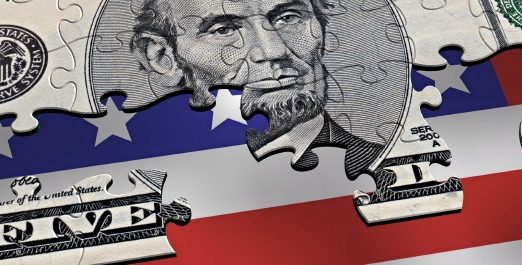Walton College economist hopes for labor force participation rate improvement; eyeing healthcare sector jobs
by July 30, 2017 9:53 am 749 views

Economist Mervin Jebaraj sees a lot of positives in the Arkansas economy, but warns that several key indicators need improvement to secure an even stronger future.
Appearing on this week’s edition of Talk Business & Politics, Jebaraj said despite historically low statewide unemployment of just 3.4%, the state’s labor force participation rate still has room to grow.
“Arkansas’ labor force participation rate has stayed below 60% after it went there in the aftermath of the Great Recession. So currently our labor force participation rate in Arkansas is one of the lowest in the country,” he said. “I think what we can hope to see in the future if the economy continues to grow is the unemployment rate to stay pretty low, and the labor force participation rate to continue to rise. We were at about 58 or so percent in May so we want to see that above 60% soon.”
He added: “Before the Great Recession in Arkansas, our labor force participation rate was north of 60%, 61%, 62%, so it would be really nice in the short run to at least see Arkansas there.”
Jebaraj, who serves as interim director of the University of Arkansas Walton College of Business’ Center for Business & Economic Research, also noted that despite the low unemployment, we’ve yet to see real pressure on wage increases for the labor market.
On another front, Jebaraj highlighted the growth in professional and business services sector jobs, such as accountants and architects. These tend to be higher paying wages, he noted.
“We’ve seen a good amount of growth in this particular sector in the state and in several of our metro regions. And what that tells me is the economy in general must be doing better because we don’t typically see a lot of employment of lawyers and architects and accountants if the wider economy isn’t doing as well,” he said. “So that’s definitely a positive as these are good paying jobs.”
Jebaraj warns that the federal debate over healthcare reform – and the possibility that the ranks of the insured being reduced – could bring uncertainty to the healthcare sector, which has seen red-hot job growth over the last several years.
“The healthcare piece is interesting. Before [this week], I would have walked up here and said that the healthcare sector has been growing and is expected to continue to grow in Arkansas and across the nation,” said Jebaraj. “After the Affordable Care Act passed in 2014, or went into effect in 2014, we’ve added something like 15,000 jobs in Arkansas in the healthcare sector. So with the uncertainty, especially after the vote in the Senate, depending on whose study you’re looking at, we could lose up to about half those jobs in that particular sector if the House passed version of the reform bill goes through.
Lastly, Jebaraj said retail jobs have been slipping due to the impact of online sales on brick-and-mortar retailers.
“We’ve lost a lot of jobs in particular at the large department stores as they continue to lose the competition to online, and honestly, I don’t know where the bottom for that is,” he said.
Watch Jebaraj’s full interview below.
